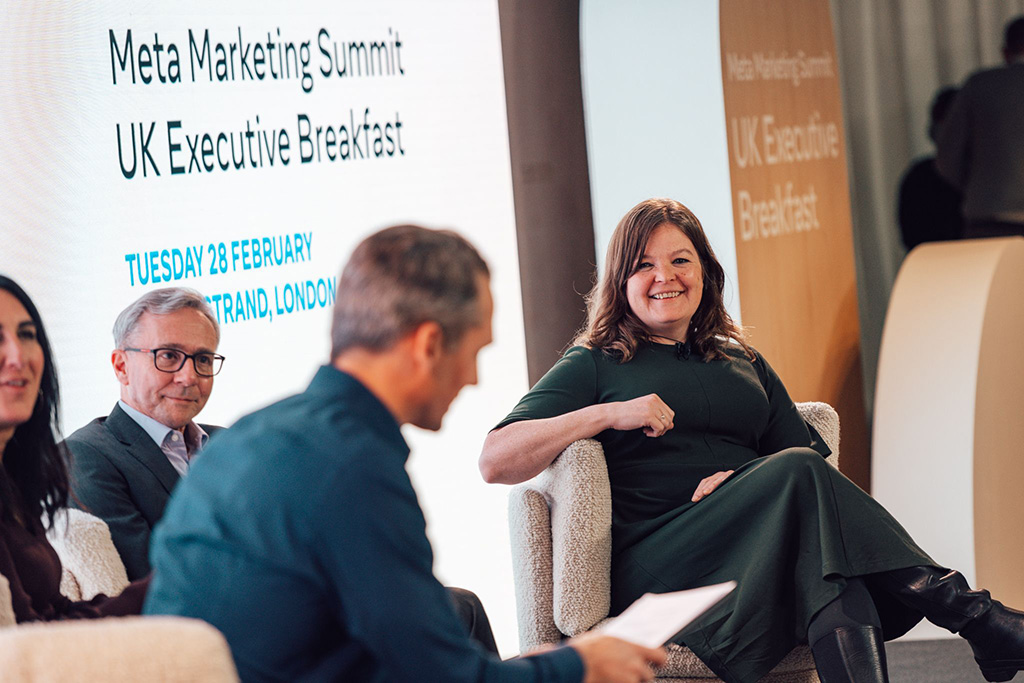By Steve Boehler with special guest Dr. Grace Kite
How can marketers and their agencies use data to better serve their businesses?
One key foundation of successful modern marketing is a deep knowledge of data and how to make data science better serve our understanding of customers, competitors and markets. Yet few marketers are well trained in how to use data effectively. Enter Dr. Grace Kite of Magic Numbers.
Dr. Grace Kite is a business economist who’s worked on hundreds of marketing analysis projects. In every effort, she’s learned what works to get growth, and coached marketing people on using their numbers to see the needed change and make it happen. In 2010, Grace founded Magic Numbers, which does analytics and econometrics in a way that’s human and down to earth, but always bang on and bang up to date. In 2023, she founded Magic Works, which offers practical, no-nonsense, training on what works in marketing and how to convince stakeholders to do the right thing. Grace is a columnist at Marketing Week and WARC, and a regular speaker on marketing effectiveness. She has 14 IPA Effectiveness awards, including the Grand Prix in 2022 to her name.
We caught up with Dr. Kite and discussed the latest developments in data science.
It’s been quite a year in marketing. What developments (in addition to AI) do you believe have been the most important to marketers and most relevant to their success this coming year?
Grace: One I’d call out from 2023 was the explosion in retail media, led by Amazon.
It’s something that marketing people are going to use and spend a lot of money on. Many of us will feel it seems like a great idea to be there at the point where people are actively shopping and ready to spend money.
The trouble is that marketing in “high intent” locations, like retailers’ sites, or where someone’s already typed in a brand they’re keen on, is tricky. It’s easy to forget about what brought people to their “high intent” state and think that ads in these places do more than they actually do.
Important in 2024 will be knowing how not to spend too much on these types of ads. It’ll also be important to be able to manage yet another platform and ensure that all initiatives on all platforms are working well and working together.
You publish often, present often and post often. Many of those posts have fantastic charts and images. What are your personal favourite charts or tables and why?
Grace: I love the ramp and bump chart – it had this insight that performance marketing can bring growth over the long term, as long as it keeps being increased without reaching diminishing returns.
It also introduced the performance plateau, the moment when performance marketing runs out of steam and something else is needed if fast growth is to continue. I love this one so much because it spawned a lot of other related work that many people find useful, and that became the basis of my Scaling Up Works course.

Another more recent favourite is super relevant right now because it’s all about how advertising supports higher prices. Looking across lots and lots of businesses that have done the research, those that spend more on advertising are more able to increase price without losing all their customers.

I love that one because it shows the power of marketing. Most businesses could increase their profits a lot if they raised their price just a little, and advertising buys that option for you. That’s important.
If you were a new CMO today, what would you practically do to enhance your company’s ability to leverage data to enhance marketing success?
Grace: I would invest in people, in their understanding of data, in their ability to not be misled by it. The reason is that data on its own can’t bring about needed change, only people can do that.
Many marketing people aren’t confident with data. It’s often because of how math is taught at school, but its sometimes also because the sort of people that go into marketing are more interested in people, ideas, and creativity than numbers.
But no decision in modern marketing is made without data, so that’s a skill gap that needs tackling.
What are the most urgent data-driven questions that marketing theorists need to answer next?
Grace: A really important one is how to evolve marketing strategies to ensure that marketers can keep their products and brands familiar in a platform-first world where big audiences in place are vanishingly rare.
Advertising on different platforms needs to be tailored to the platform itself, because people have different mindsets on TikTok vs. Amazon vs. Facebook. But people are still not paying much attention to ads so there needs to be enough consistency and careful media planning to build familiarity over a lot of disparate executions.
There’s also an important question about the role for influencers and other organic social. This is a uniquely trusted source of information in a world of fake news and the most entertaining content available if you ask younger people.
We aren’t yet using this in the best possible way, as we haven’t done enough experimentation and evaluation yet.

Dr. Grace Kite at the Meta Marketing Summit
What new analysis are you working on that will make heads explode this coming year?
Grace: Exactly those ones mentioned above!
When asked for advice on books to read and thought leaders to follow, people often (appropriately) mention Les Binet, Peter Field, Byron Sharp, Karen Nelson-Field and of course Dr. Grace Kite. Who else do you follow and read in the area of marketing science?
Grace: I love your list. I would add Paul Dyson, Tom Roach, Mark Ritson, Koen Pauwels, David Tiltman and some less well-known people who post less regularly: Billy Ryan and Richard Kirk.
I’m fascinated by some of your contributions to marketing recently, like the Budget Planning Tool (free on your website!) and some of your articles like “To get the mix of brand and performance right, theory on its own is not enough”. And I applauded loudly when I read “It’s not women that need fixing, it’s how the workplace treats parents”. If a marketer had 15 minutes to kill, which of your articles would you most recommend?
Grace: Well, all my articles are only 5-minute reads. I pack them with evidence as well as commentary, so I try to make it a really valuable 5 minutes’ worth the time invested.
A classic is the one that introduced the performance plateau, “the wrong and the real of it”. I’m also proud of a collaboration with 17 UK experts on market mix modelling and the perils of working with inexperienced providers and corner-cutting automation.
I think my best are still to come though and would say your readers should connect with me on LinkedIn as that’s where the good stuff comes out first.
I understand that you have some new training programs that will drop in early 2024. What can you tell us about those programs, who should attend, and how can they register?
Grace: Yes, that’s right. Through loads of market research in 2023 we identified a need. Marketing people told us that although there’s more training for marketing people than ever before, there’s an important gap in what’s on offer.
The training they took gave them knowledge, but not the skills to adapt that knowledge to their own business, or the credibility to use it convincingly.
So that’s the gap our training tackles. We have a course in March which is all about the right mix of brand and performance for online businesses, and one in April which is for anyone working in marketing that’s never been trained on marketing data.
All the info is here: https://magicworks.training/
Grace, you’ve made quite a name for yourself in marketing science and analytics. How did you catch the fever to become a force in modern marketing knowledge?
Grace: I just like seeing patterns in how the world works, and through the years of doing marketing evaluation projects I could see things that were useful.
I’ve never been a believer in data for its own sake, so I couldn’t resist sharing the patterns I’d seen with marketing people who could benefit.
Knowing what you know today, what advice would you give to your 30-year-old self?
Grace: 30-year-old me was pretty epic! I’d just tell her to keep doing her thing.

Dr. Grace Kite is a business economist who’s worked on hundreds of marketing analysis projects. In every effort, she’s learned what works to get growth, and coached marketing people on using their numbers to see the needed change and make it happen. In 2010, Grace founded Magic Numbers, which does analytics and econometrics in a way that’s human and down to earth, but always bang on and bang up to date. In 2023, she founded Magic Works, which offers practical, no-nonsense, training on what works in marketing and how to convince stakeholders to do the right thing. Grace is a columnist at Marketing Week and WARC, and a regular speaker on marketing effectiveness. She has 14 IPA Effectiveness award winners, including the Grand Prix in 2022 to her name.
